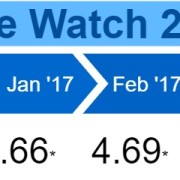Why Having a Financial Professional Matters
Why Having a Financial Professional Matters
A good financial professional provides important guidance and insight through the years.
What kind of role can a financial professional play for an investor? The answer: a very important one. While the value of such a relationship is hard to quantify, the intangible benefits may be significant and long lasting.
A good financial professional can help an investor interpret today’s financial climate, determine objectives, and assess progress toward those goals. Alone, an investor may be challenged to do any of this effectively. Moreover, an uncounseled investor may make self-defeating decisions.
Some investors never turn to a financial professional. They concede that there might be some value in maintaining such a relationship, but they ultimately decide to go it alone. That may be a mistake.
No investor is infallible. Investors can feel that way during a great market year, when every decision seems to work out well. In long bull markets, investors risk becoming overconfident. The big-picture narrative of Wall Street can be forgotten, along with the reality that the market has occasional bad years.
This is when irrational exuberance creeps in. A sudden market shock may lead an investor into other irrational behaviors. Perhaps stocks sink rapidly, and an investor realizes (too late) that a portfolio is overweighted in equities. Or, perhaps an investor panics during a correction, selling low only to buy high after the market rebounds.
Often, investors grow impatient and try to time the market. Poor market timing may explain this divergence: according to investment research firm DALBAR, the S&P 500 returned an average of 8.91% annually across the 20 years ending on December 31, 2015, while the average equity investor’s portfolio returned just 4.67% per year.(1)
The other risk is that of financial nearsightedness. When an investor flies solo, chasing yield and “making money” too often become the top pursuits. The thinking is short term.
A good financial professional helps a committed investor and retirement saver stay on track. He or she helps the investor set a course for the long term, based on a defined investment policy and target asset allocations with an eye on major financial goals. The client’s best interest is paramount.
As the investor-professional relationship unfolds, the investor begins to notice the intangible ways the professional provides value. Insight and knowledge inform investment selection and portfolio construction. The professional explains the subtleties of investment classes and how potential risk often relates to potential reward. Perhaps most importantly, the professional helps the client get past the “noise” and “buzz” of the financial markets to see what is really important to his or her financial life.
This is the value a financial professional brings to the table. You cannot quantify it in dollar terms, but you can certainly appreciate it over time.
 Blake Street, CFA, CFP®
Blake Street, CFA, CFP®
Chief Investment Officer
Founding Partner
Warren Street Wealth Advisors
Blake Street is an Investment Advisor Representative of Warren Street Wealth Advisors, a Registered Investment Advisor. Information contained herein does not involve the rendering of personalized investment advice, but is limited to the dissemination of general information. A professional advisor should be consulted before implementing any of the strategies or options presented.
This material was prepared by Marketing Pro, Inc. Any investments discussed carry unique risks and should be carefully considered and reviewed by you and your financial professional. Past performance may not be indicative of future results. All investment strategies have the potential for profit or loss. Changes in investment strategies, contributions or withdrawals may materially alter the performance, strategy, and results of your portfolio.Historical performance results for investment indexes and/or categories, generally do not reflect the deduction of transaction and/or custodial charges or the deduction of an investment-management fee, the incurrence of which would have the effect of decreasing historical performance results.Economic factors, market conditions, and investment strategies will affect the performance of any portfolio and there are no assurances that it will match or outperform any particular benchmark. Nothing in this commentary is a solicitation to buy, or sell, any securities, or an attempt to furnish personal investment advice. We may hold securities referenced in the blog and due to the static nature of content, those securities held may change over time and trades may be contrary to outdated posts.
Citations.
1 – zacksim.com/heres-investors-underperform-market/ [5/22/17]









